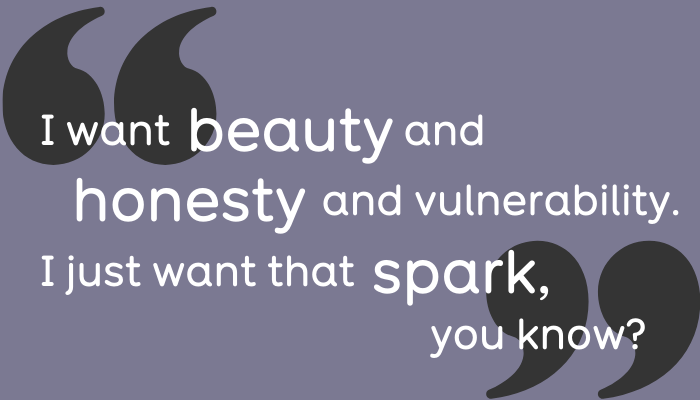An Interview with Tanya Byrne

Apply now for Representing Wales
What genres do you specialise in? What is your writing journey?
I specialise in commercial fiction because I feel strongly that writers from marginalised backgrounds should be represented in every genre, not just literary fiction. So, I write Young Adult under my own name and Romance under the pen name Lizzie Byron.
I always thought my writing journey was an unusual one. After all, I wasn’t read to as a child. I grew up in a house with no books, but the television was always on. I did Law at university because my mother wanted me to do a ‘proper’ degree, so I’ve never studied creative writing and I certainly don’t have a MA in Prose Fiction from UEA. I just know words and what order they should go in sometimes. I don’t know why.
So, I sat in my spare room every Sunday for a year and wrote a book. Then, when I reached the point where I’d done everything I could to it, I submitted it to agents. I didn’t know anyone in publishing back then, so I did it the hard way; using Google and the Writers’ & Artists’ Yearbook.
Luckily, it worked. That manuscript went on to become my first novel, Heart-Shaped Bruise, and now, ten years later, here I am. As a brown, queer writer from a low-income background myself, I know hard it is. Like I said, I know words and what order they should go in sometimes but, other than that, I didn’t have a clue what I was doing or where to start. I just knew that I wanted to write books.
Now I know that my experience certainly isn’t unique. There are so many writers out there who are just like me. Who didn’t go to Oxford or UEA and have jobs and families and dogs and a thousand other reasons why they don’t have the time or the means to sit down and write a book. I did it, though. I’m still not sure how, but I did. So, I’m determined to make sure that anyone who is in the position I was in ten years ago knows that they can do it as well and make it easier for them in any way I can.
What kind of barriers do writers from low-income backgrounds face?
They say that money doesn’t buy happiness, but it does buy time. It buys freedom and choice and the space to create. To explore and indulge your curiosities and take wrong turns sometimes, but it’s okay because you’ll find your way back eventually. That’s the biggest barrier. So many people want to write – or paint or sing or act – but they have rent to pay and families to raise so it becomes a hobby. Some secretive thing to be done, late at night, when everyone has gone to bed. Or, as I did, every Sunday.
Trying to contain your creativity to these snatched pockets of time is almost impossible. Having to sit down with your notebook and laptop at 9pm when most people are settling down on the sofa to watch something on Netflix takes a lot of discipline. Especially when you just want a long bath and an early night.
Often, that’s regarded as a mark of dedication. The brooding writer, scribbling away in the near dark or at a café while their baby sleeps in the buggy next to them. If you want it – really want it – then you’ll stay up until 4am or miss your friend’s birthday party because you’re a writer and it’ll be worth it in the end.
It shouldn’t be that way, but for many of us, it is. Then, when we actually finish the book, we don’t know what to do with it. We don’t know anyone in publishing or if they’d even want it if we did. So, for many, writing remains a hobby. Our notebooks and laptops cluttered with half-finished manuscripts that will likely never be finished and, if they are, probably won’t be read by anyone beyond friends and family.
That means that only certain people can afford to write books, which means that only certain stories are told. I don’t want that. I want to read everything. Everybody should be allowed to tell their story. If for no other reason than, somewhere, out there, there’s a reader who needs your story. Who has read so many of those other ones and needs to see themselves reflected in yours so they know they’re not alone.
How do you think the Representing Wales programme can help writers from low-income backgrounds?
As well as the more practical guidance, I think the most obvious – and perhaps, most important – way is confidence. Letting these writers know that they’re not being vain or self-indulgent or delusional for wanting to pursue a career in writing. That they have something and giving them the licence to explore it.
What are you hoping to see/find in the applications?
A voice I’ve never heard before. The prose doesn’t have to be perfect and the plot doesn’t even need to be particularly unique, but I want to read something that will catch me off guard. Something that will make me want to keep reading. I want beauty and honesty and vulnerability. I just want that spark, you know?
Why would you encourage eligible writers to apply?
Because I didn’t have this and I wasted years telling myself that people like me don’t write books. I thought wanting to be an author was like wanting to be an astronaut or a rock star, or something. So, if you think you have something but you don’t know what to do with it, please apply. We can help. We want to help.
The deadline for Representing Wales is Tuesday 14 December 2021. Find out more here: Representing Wales.